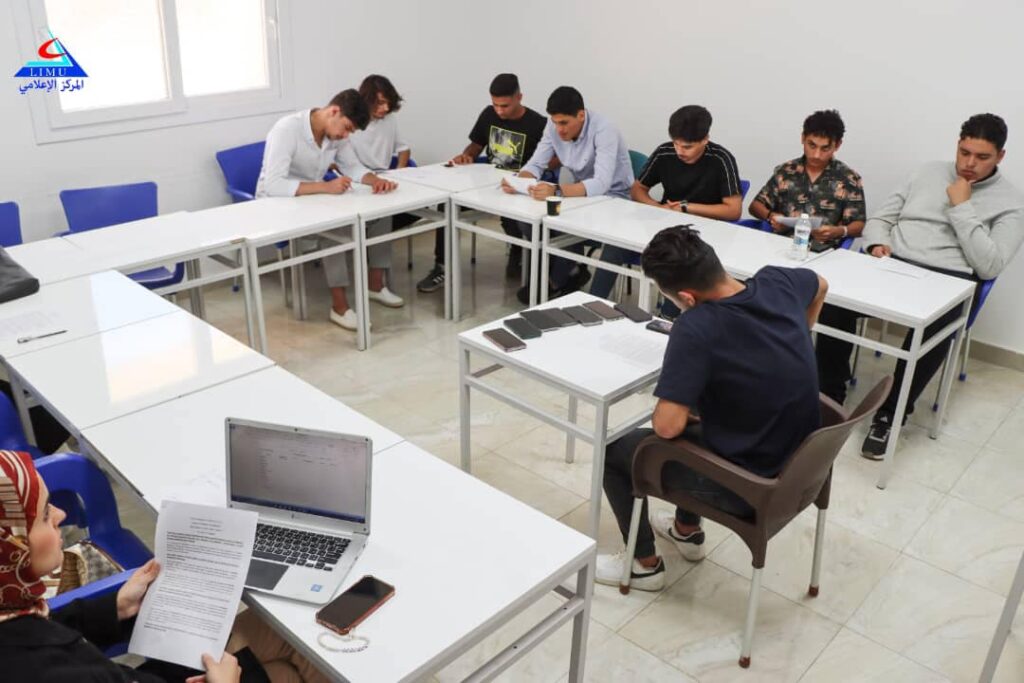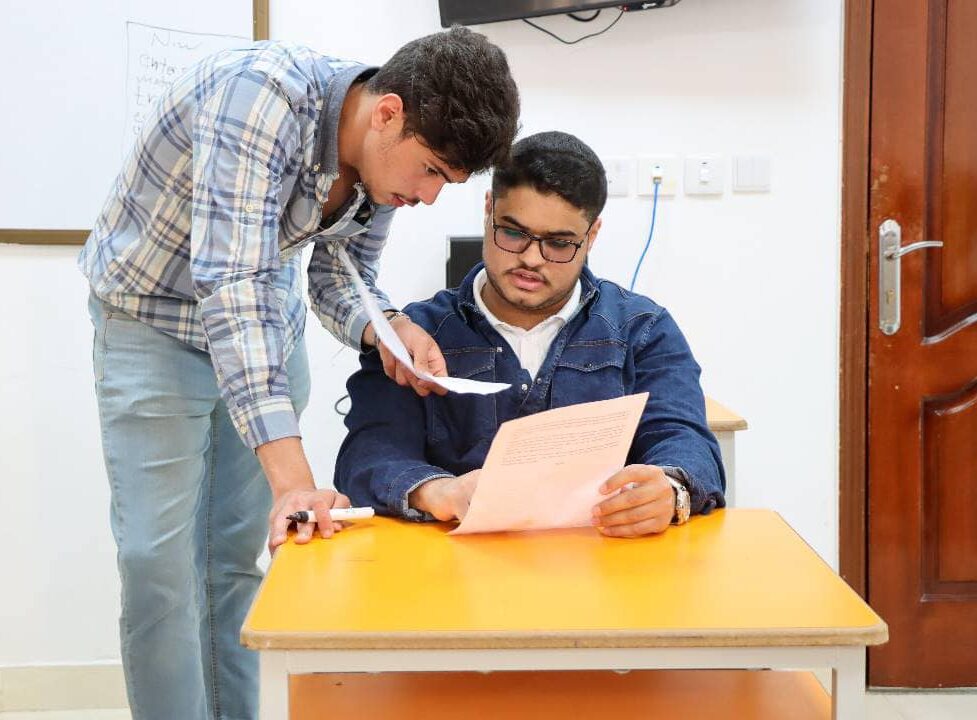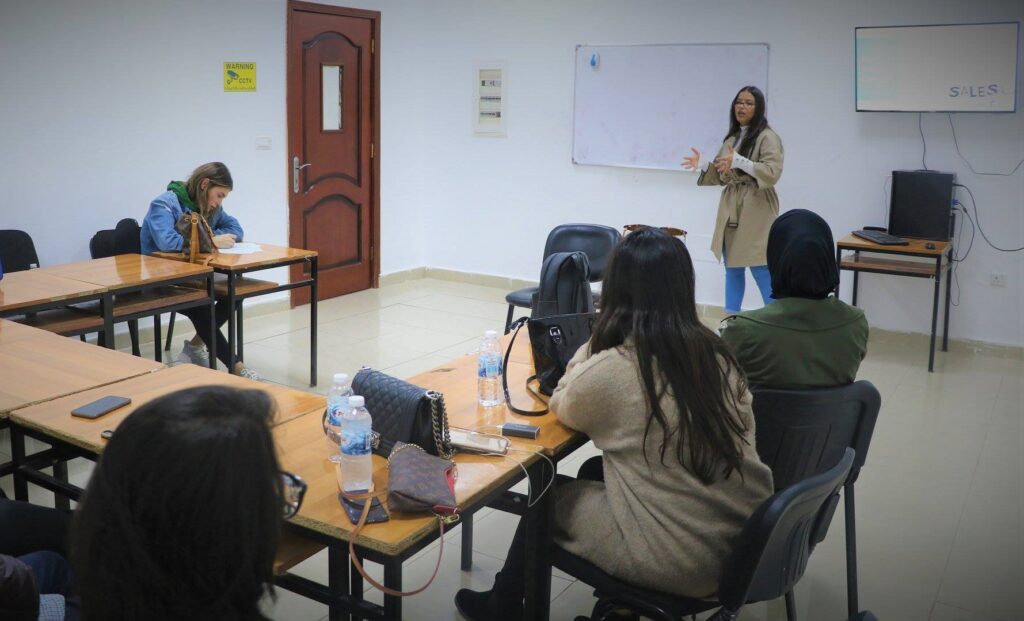Teaching and Learning strategies
Teaching and Learning Strategies
The Faculty of Business Administration adopts an active learning philosophy that places the students at the heart of the educational process. Our goal is to prepare students for this fast-paced, competitive corporate environment and to efficiently handle complex problems.
In addition to regular lectures, the faculty employs Problem-based Learning, Team-based learning, and Case-based learning, among other approaches, to support the students’ active learning process. Therefore, our academic staff are equipped with teaching, and technological knowledge as well as experience in their field. Additionally, the scientific material used is regularly updated and enhanced to improve the student’s learning experience, the material is accessible in different formats: PPTs, PDFs, and Word Documents. Students download their course material from Moodle whenever they want.
Problem Based Learning (PBL)

Problem-based learning is an educational approach that designs learning activities with problems at its center. It is gaining popularity in Business education as it matches students, and stakeholders’ needs with pedagogy. stakeholders demand higher education institutions provide real-world experiences to their students since students will face those problems in their careers and should be well-equipped to fix them. It helps our students in building professional expertise, learn logic, and Problem-solving, self-learning tactics.
PBL Sessions
They consist of a small group of students, 12 or less, and a tutor. Students stay with the same group for the entire duration of the semester. The first session is the Brainstorming session, while the second one is the Debriefing session


Brainstorming session
Students are presented with a problem/ scenario that is based on real-life. They must work together to identify, summarize, and analyze the problem. They then have to formulate the learning objectives. In order to successfully complete these tasks, they have to first decide on the roles; during any Brainstorming session, there are three roles to be covered. They are the Leader, the Scribe, and the Group members. Students rotate these roles on a regular basis.
- The leader guides the group through problem-solving. They will promote participation and use time management to finish the work on time.
- The scribe’s main mission is to record the session’s discussions. They organize group thoughts and write down the formulated learning objectives at the end.
- The Group members are the remaining PBL session members.
The leader, scribe, and attendees will discuss, listen, and ask questions in order to fully understand the scenario and successfully find out the objectives.
The Tutors’ Role in the Brainstorming Session
The tutor in the session acts as the facilitator, they aren’t necessarily there to teach but to oversee and guide the PBL session.


Debriefing session
During this session, students will be ready to present their research results about the intended learning objectives drawn from the scenario. They need to explain their objectives and contents in a well-organized presentation using PPT format. Students are asked to pay close attention to each other’s presentations and provide feedback.
Team-based Learning TBL
- Team-based learning (TBL) combines problem-based and case-based learning. Its exercises require teams to pick an answer and defend it against other teams’ solutions. Team-based learning engages students in workplace situations to improve active learning and critical thinking. Its active-interactive nature led the faculty to incorporate it in some of its advanced courses. In TBL courses:
- Students are distributed into small groups that do not exceed 7 students in a group for the course.
- Students independently look at the case study at hand, read the prepared material, references, and related books, and then discuss their results and conclusions with each other.
- This discussion should be done under the direct supervision of the instructors. The role of the instructor is limited to clarifying any misunderstanding whenever that was necessary.
- The instructor is recommended to give short talks when there is a need to do so. In the same context, students also evaluate their answers and present their work in group discussions in the presence of the instructors. Students need to discuss their arguments as well.
Team-Based Learning is very useful in building many transferable skills such as the spirit of lifelong self-learning, self-reliance, the culture of dialogue, accepting constructive criticisms, and defending opinions with evidence and argument.
E-learning
E-Learning changed traditional chalk and board education. It revolutionized the teaching and learning process; internet-delivered courses outside of the classroom helped in simplifying, multiplying, and improving the giving and receiving of information.
By using E-learning tools, teaching, and learning become simpler, easier, and more successful. The faculty of Business Administration uses Zoom, Google Meet, and Microsoft Office packages as tools in its E-Learning journey. Lectures are sometimes recorded and then displayed on both the university’s YouTube channel and the university’s Moodle. The faculty also displays the scientific production of its students and faculty members on the digital repository and makes it available to its beneficiaries inside or outside the university.
The Faculty of Business Administration’s Digital Repository is an open-access institutional repository created to preserve the faculty, staff, and students’ research work that is created within the faculty’s five programs. The repository supports teaching and lifelong learning within the campus. Publishing these works on the DR increases the openness of the faculty to both the local and international environment.
It is one of the most popular learning management systems that is being adopted by many educational institutions around the world. It helps facilitate E-Learning. It is user-friendly. It helps engage students more in the learning process
The faculty of Business Administration uses many of the Moodle features in an attempt to improve its educational process. Instructors upload E-Books, and weekly lectures in different formats such as Word, PowerPoint, and Excel. They can also share presentations, videos, and links to other educational websites that they feel are beneficiary for their students. Moodle also provides a forum that brings the students together with their instructors for scientific dialogue on the course topics. Additionally, Instructors can also write announcements for the course’s registered students using Moodle. Finally, it aids the instructors in conducting quizzes, assignments, and periodic and final exams
